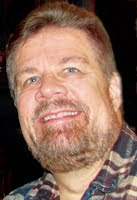It’s been 20 years, and yes, the field of journalism has changed markedly over that time – it’s no longer a profession, really, although a few choice professionals do remain employed by companies rapidly shrinking in numbers and size, vainly trying to salvage revenues being sucked away by online and economic forces.
Writers have abandoned the factual 15-word statement in favor of rambling 52-word diatribes.
Look at local news and you’ll likely be struck how many drive-by shootings and lurid lawsuits can be gleaned from police blotters and internet searches. A discerning eye might also lament a stunning lack of historical perspective, skill and creativity in the writing.
The problem: Today’s “reporters” are rarely more than passive observers. Most White House reporters would wither on the vine without their daily “Gaggle.” Newsrooms are feebly disguised internet chat rooms, housing a poorly cloned generation of news junkies fixated on “Google.”
Mark Twain most famously advised: “Write what you know.”
U.S. Poet Laureate Howard Nemerov cynically expanded on Twain’s wise counsel: “Write what you know,” Nemerov said. “That should leave you with a lot of free time.”
Contemporary journalists are a particular pet peeve of mine, but a simple observation applies aptly to the vast majority of writers: They don’t get around much anymore. Cyberspace is a pernicious shroud that blunts the consequences of assertion.
As a young reporter, I harbored the opinion that a local football coach’s blind eye to steroid use was bad for his kids; I later harbored a black eye when one of his 240-pound kids begged to differ.
My car was overturned on a busy public street. I had a gun flashed in my face once, dodged a couple tornadoes and was sued for $16 million in a state district court before I’d earned a fraction of my first million. I’ve been lectured, insulted, bullied and reviled. But I’ve also been counseled, corrected, edited and educated. Oh yes, it all was terribly exciting, Auntie Em … and it makes me a better writer.
I take pride in being a researcher into the human condition.
Drafting a marketing brochure? Talk to marketers, CEOs, sales reps, customers, prospects and seven average Joes and Janes.
Writing a term paper? Try reading the entire book instead of just glomming a sexy quotation. Phone a couple local experts and pick their brains – you’d be surprised how often an accountant, author, artist or auto-immunologist will take 10 minutes out of a busy day to “talk shop” with a genuinely curious inquisitor (and that's just the "A's").
Working on the Great American Novel? Travel, read fiction, read non-fiction, spend money you don’t have, go hungry for a week, climb a mountain, visit a brothel.
Research needn’t be tedious and obscure – though, in my experience, it is when it involves digging through boring tomes, or poring over reams of scientific research and legal minutiae.
LIFE is research. Live it. The end product may be a manuscript, it may be a letter to your congressman, it may be a toast at your daughter’s wedding. Writing is the expression of the lives we lead.
Write what you know. Combined with taking the time and effort to research life … it won’t leave you with much free time.
Next: Writing for the Ear
Next: Writing for the Ear
[For personal writing assistance, go to www.fixadocument.com]

No comments:
Post a Comment